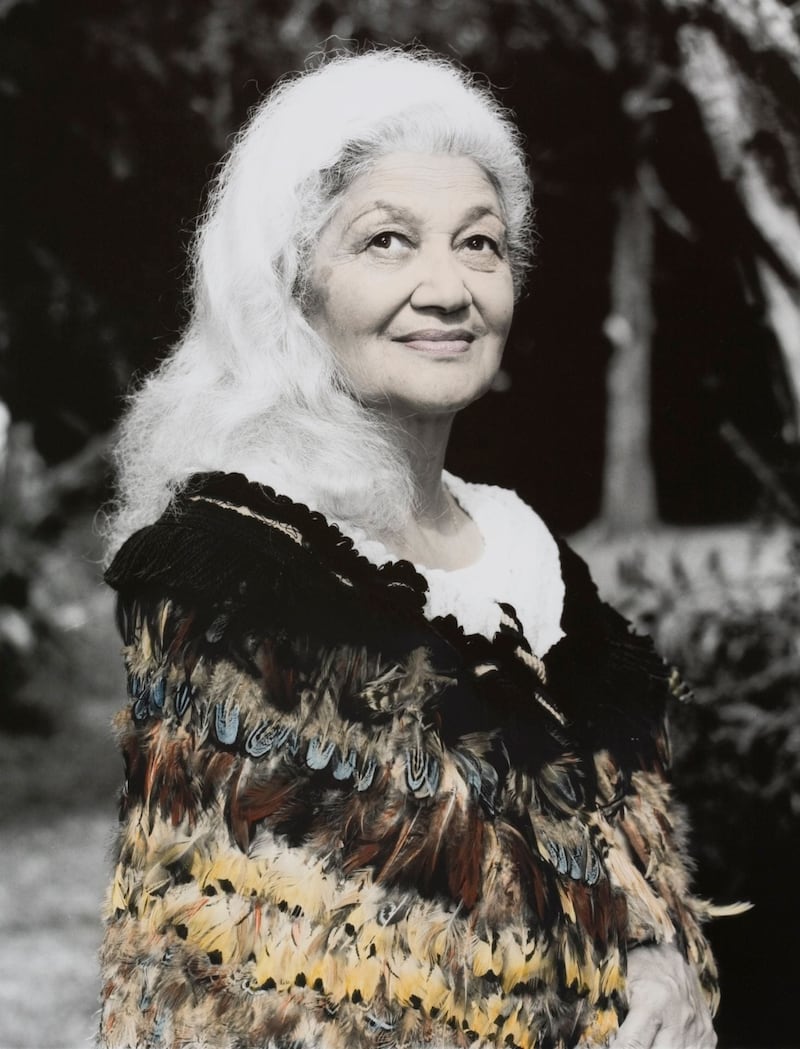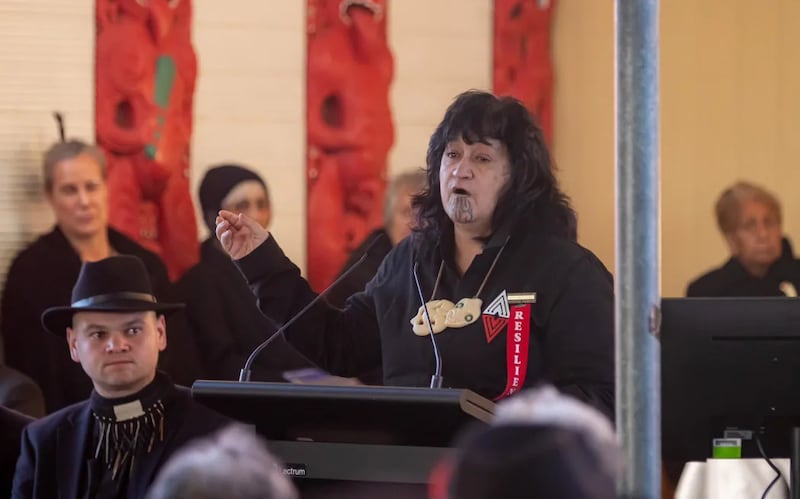The Waitangi Tribunal has heard how the Crown’s historic and ongoing breaches have caused deep and systemic harm to wāhine Māori, which has caused the exclusion, marginalisation, and silencing across every sphere of public life.
It is the first day of the substantive hearings for the long-awaited Mana Wāhine Kaupapa Inquiry, which was first lodged more than 30 years ago by notable leaders Dame Areta Koopu, Dame Whina Cooper, Dame Mira Szaszy, Ripeka Evans, Dr Erihapeti Murchie, Dame Georgina Kirby, Dame June Mariu, Violet Pou, Hine Potaka, Dame Aroha Reriti-Crofts, Dr Papaarangi Reid, Donna Awatere-Huata, Lady Rose Henare, Katerina Hoterene, Te Para (Mabel) Waititi, and Kare Cooper-Tate.

The claim was triggered by the removal of Dame Mira Szaszy from the shortlist of appointees to the Treaty of Waitangi Fisheries Commission in 1993.
After tūāpapa hearings determined the scope of the wider inquiry a few years ago, the Tribunal will now hear claims which allege prejudice to wāhine Māori as a result of Treaty breaches by the Crown.
The central question is the alleged denial of the inherent mana and iho of wāhine Māori and the systemic discrimination, deprivation, and inequities experienced as a result.
Te whakapuakanga o te Karauna
At Te Tumu Herenga Waka Marae at Victoria University in Wellington, Crown counsel, Freya Dean, was the first to give her opening statements, acknowledging the disparities wāhine Māori face, while carefully distancing the role of the Crown.
“The introduction of Christianity and Western political and constitutional structures as features of colonisation has had a profound impact on Māori, including wāhine Māori. For wāhine Māori, this profound impact would have been distinctive, given the historical roles of women in both the church and in political and economic life,” Freya Dean asserted.
She said the Crown has acknowledged that colonisation and past breaches of the treaty and the ongoing effect of historical injustices on iwi, hapū, and whānau are likely contributing factors to wāhine Māori experiencing disparities in well-being, representation, and outcomes.
She later added, however, to look at other factors that would have contributed to the erosion of the rights of wāhine Māori.
“It is also relevant and important to acknowledge that challenges to traditional, tribal society have come from broad global trends and fluctuations, including capitalism, urbanisation, industrialisation, democratic political structures and principles, and feminism.” She added.
Lawyer for some of the original claimants, Annette Sykes, described the inquiry as a constitutional moment - but slammed the Crown’s revised opening statement, accusing it of caving to the coalition Government’s agenda.

“I found the approach in the Crown’s submission minimalist and while there were a number of concessions… they seemed to be feted by some of the rhetoric that unfortunately is dominating many of the political statements emanating from parliament at the moment, which do not honour Te Tiriti, which are about dishonourable kawanatanga - and are not about ensuring that the dignity of Maori women is actively protected and restored but also given prominence in the way we run this country,” Sykes told the hearing.
Sykes challenged the Crown as to why this had taken so long, and lack of resourcing or prioritisation of this inquiry further compounds its case.
“The mana wāhine inquiry is not only about recognition of past wrongs but about reimagining how Te Tiriti is to be understood and applied in relation to wāhine Māori today. This claim invites the tribunal to consider what it truly means to protect tino rangatiratanga, in a way that restores balance and affirm tikanga Māori and give wāhine Māori the authority and space as leaders, healers, and knowledge holders and protectors of our people,” Sykes added.
Kua huakina ngā tatau o te whare kōrero
Ani Mikaere, a prominent legal academic, was first to give her brief of evidence in today’s hearings. She told the Waitangi Tribunal that colonisation has significantly eroded the traditional authority of Māori women.
“Māori creation stories and tikanga once upheld the mana of wāhine Māori, recognising them as leaders, protectors of whakapapa, and powerful spiritual figures. She highlighted ancestral examples, such as the leadership of Waitohi and Rangi Topeora, to show that women held critical roles in politics, warfare, and community decision-making,” She said.
Mikaere said that colonisation, through missionaries and early Pākehā writers, introduced patriarchal and hierarchical thinking that reshaped Māori worldviews.
She stated in her evidence, early ethnographers misrepresented Māori stories, downplayed the presence of female atua, and promoted male dominance, leading to generations of Māori being taught that leadership and authority belonged mainly to men.
Mikaere said the claim is an opportunity to confront this colonial legacy and restore balance by reaffirming the rightful place of wāhine Māori.
The hearing continues for the rest of the week.


